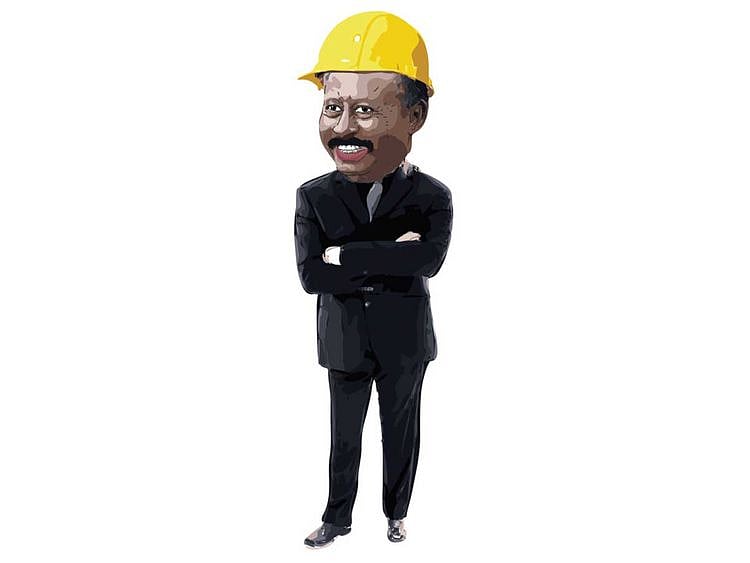It’s hard to fully understand the concept of an inflation rate that exceeds 60 per cent almost on a monthly basis, but Sudan has a severe problem with inflation.
Let’s put it this way: Almost 10 years ago, in September 2009, if you wanted to buy one Sudanese pound, you’d have to pay Dh1.58. Today, if you can get someone to actually sell the currency, one Sudanese pound will cost you all of 8.5 fils.
That’s depreciation in very real terms if you’re living in Khartoum, for example, and want to put bread in your belly or petrol in your car. It means people queue for almost everything.
And when you’re standing in queues for almost everything, it’s natural to become disgruntled with the powers to be. That’s exactly what happened in Sudan in very simple political terms too.
The veteran, autocratic president for 23 years has been swept from power — Omar Al Bashir is now on trial for corruption and mismanagement and a litany of other crimes.
The Transitional Military Council (TMC) that ruled Sudan for four months after Al Bashir’s overthrow has now agreed a path for the handover of power to people of Sudan, and free elections will be held over the next three years. And the main opposition alliance — the Forces of Freedom and Change (FFC) — representing all those who queue for bread and petrol, has nominated Abdullah Hamdok to be prime minister in the country’s transitional government.
Born in 1951, Hamdok is an economist who has served in international institutions and the private sector but now faces the biggest challenge of his career in putting Sudan’s financial house in order and stimulating growth.
And it’s not going to be easy. Even getting to this point has been a struggle for the FFC, with protracted and difficult negotiations resulting in a standoff between military and citizenry that brought the nation to a standstill.
Illustrious career
Hamdok was last working as Deputy Executive Secretary of the United Nations Economic Commission for Africa (UNECA), and has held positions at the International Labour Organisation in Zimbabwe and the African Development Bank.
He had served as an official in Sudan’s Ministry of Finance in the 1980s, before the military coup that put Al Bashir in power.
Sudanese economist Amin Hassan Syed Ahmad said Hamdok had good connections in the African Union and UN and might help get Sudan removed from Washington’s list of state sponsors of terrorism, which has impeded Khartoum’s access to International Monetary Fund and World Bank funding.
“I think he knows how to get in through the system, much more than anyone else who tried before,” he said.
“We wish Dr Abdullah Hamdok success in one of the hardest periods in the history of our country and people, a period that the revolutionary Sudanese people are looking forward to and observing with hopefulness,” the Sudanese Professionals Association, the group that spearheaded the protest movement and is part of the FFC, said in a statement.
The opposition alliance also nominated former judge and human rights activist Mohammad Al Hafiz Mahmoud as public prosecutor and Abdul Qadir Mohammad Ahmad as head of the judiciary.
Some caution that it is still too early to tell how events will unfold in the lengthy, three-year, three-month transition period agreed to prepare for elections after three decades of repressive rule under Al Bashir.
While it’s difficult to get details on Hamdok’s personal life, what’s clear is that he has an impressive professional curriculum vitae. It includes a Bachelor in Science degree from the University of Khartoum, with a Masters of Arts and a doctorate from the school of economic studies at the University of Manchester in England.
Hamdok served as Deputy Executive Secretary of UNECA since November 2011 and has more than three decades of experience as a senior policy analyst and economist. According to his biography posted at the UN, he specialises in “addressing diverse development challenges of the African policy landscape, primarily in the fields of governance, institutional analysis, public sector reforms, regional integration and resource management”.
From 2001 onwards, Hamdok headed the ECA’s portfolio of activities on development policy management, the New Partnership for Africa’s Development and regional integration, and governance and public administration. “By way of an interlude from 2003 to 2008, he served the International IDEA as Regional Director for Africa and the Middle East,” it notes.
Certainly, on paper anyway, it looks as if those who queue for bread and petrol and worry about the value of that Sudanese pound in their pocket, have a man with the theoretical knowledge of ending their misery. Whether Hamdok can translate that into action — and navigate the political challenges too — remains to be seen.
— With input from agencies
Sign up for the Daily Briefing
Get the latest news and updates straight to your inbox
Network Links
GN StoreDownload our app
© Al Nisr Publishing LLC 2026. All rights reserved.
